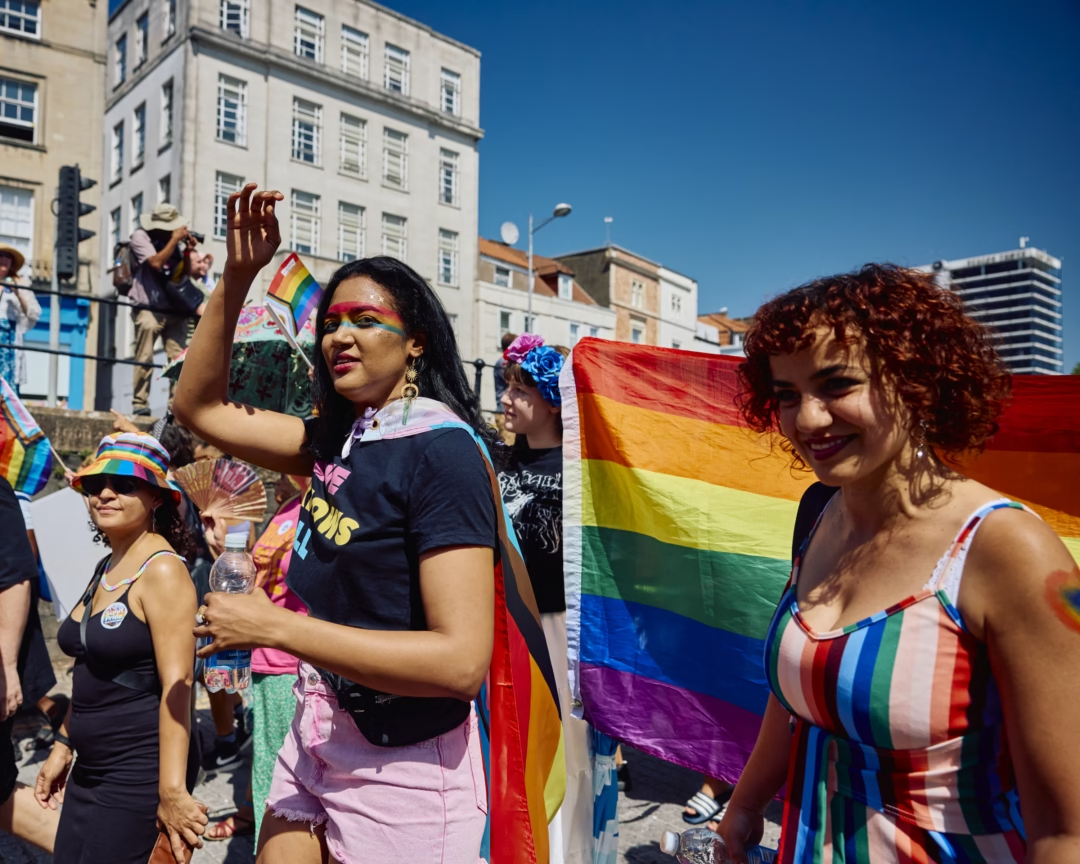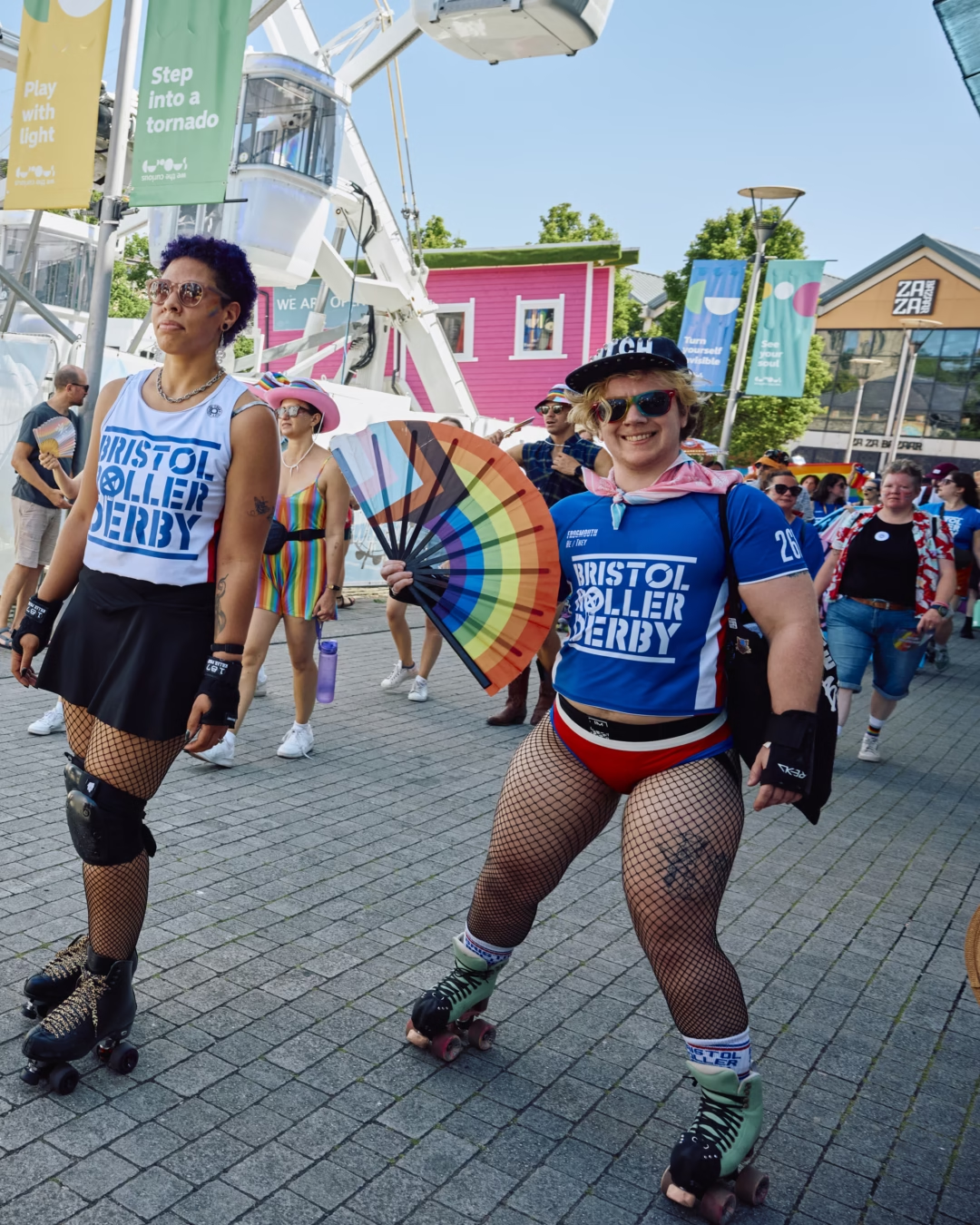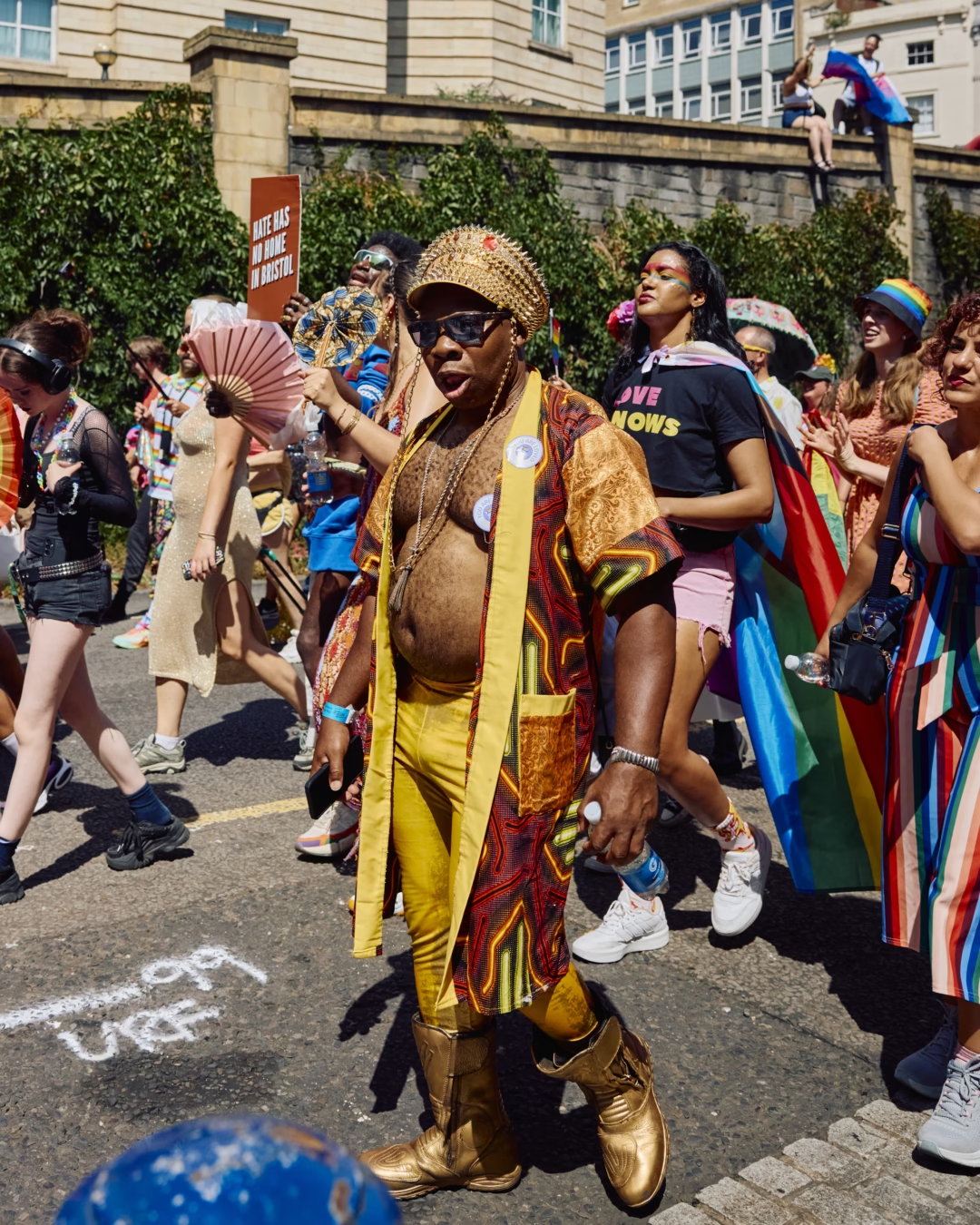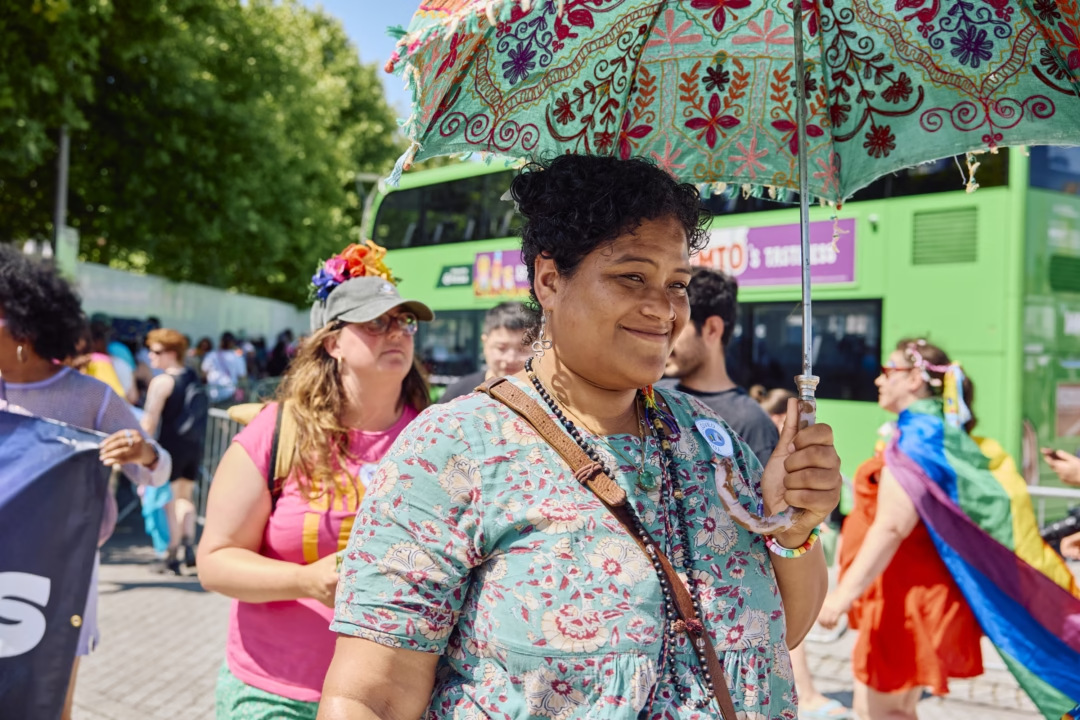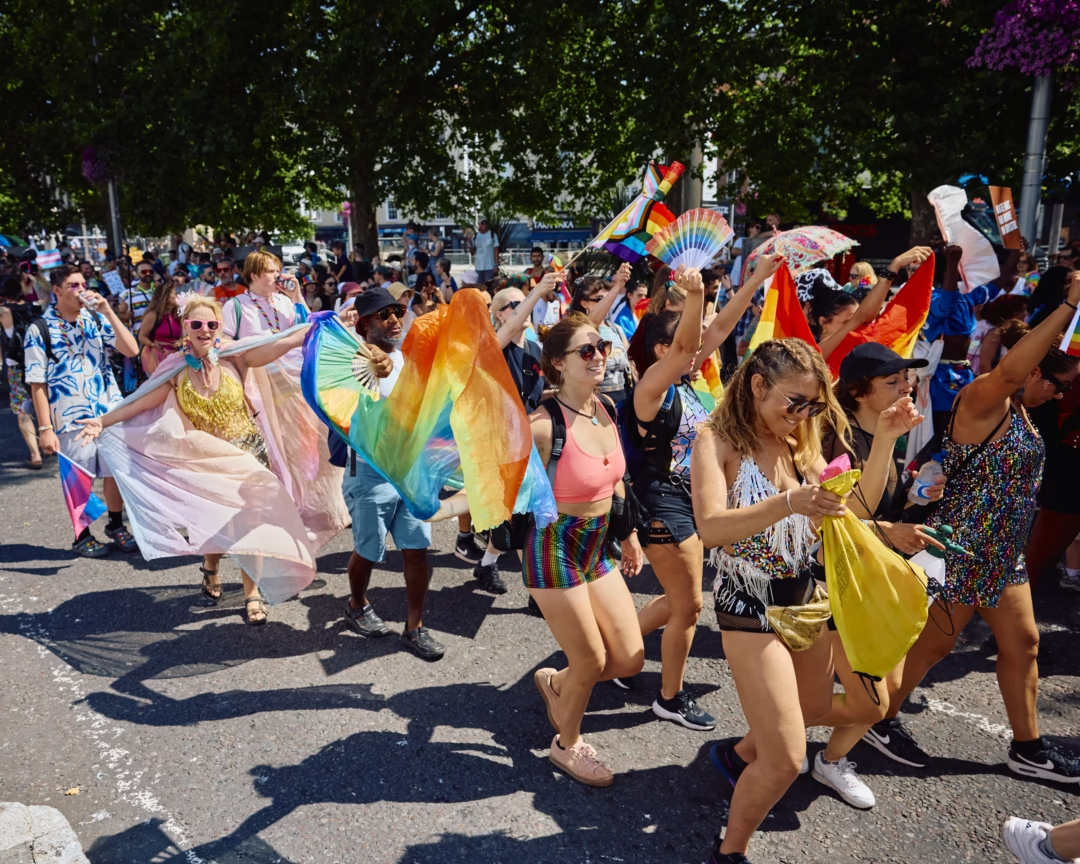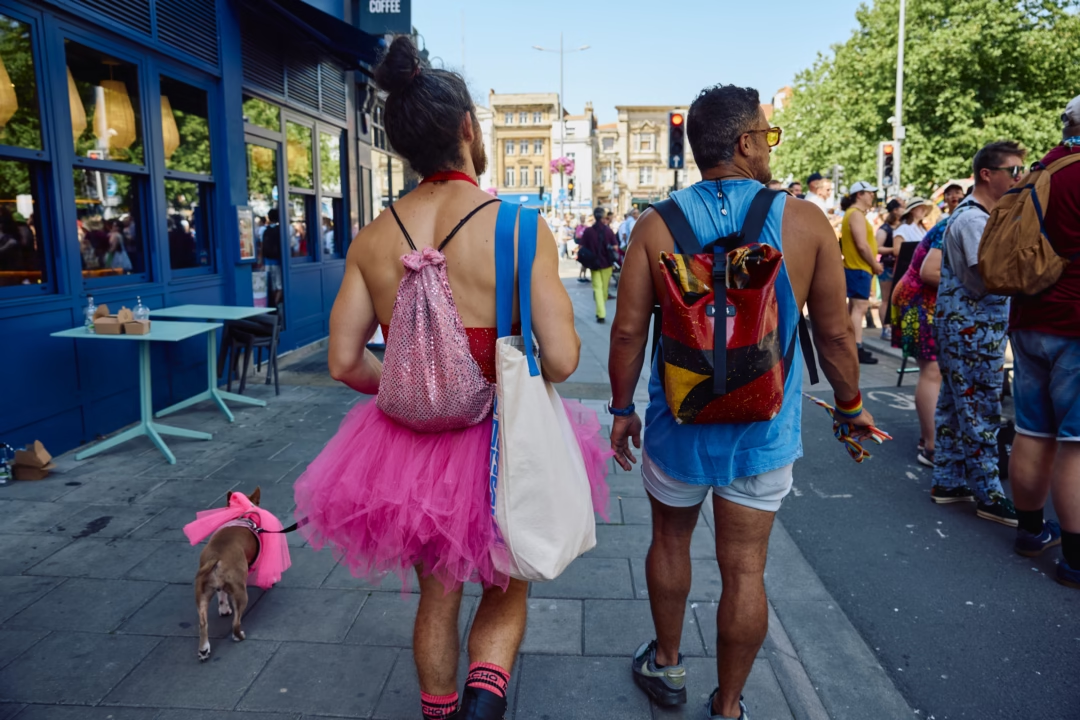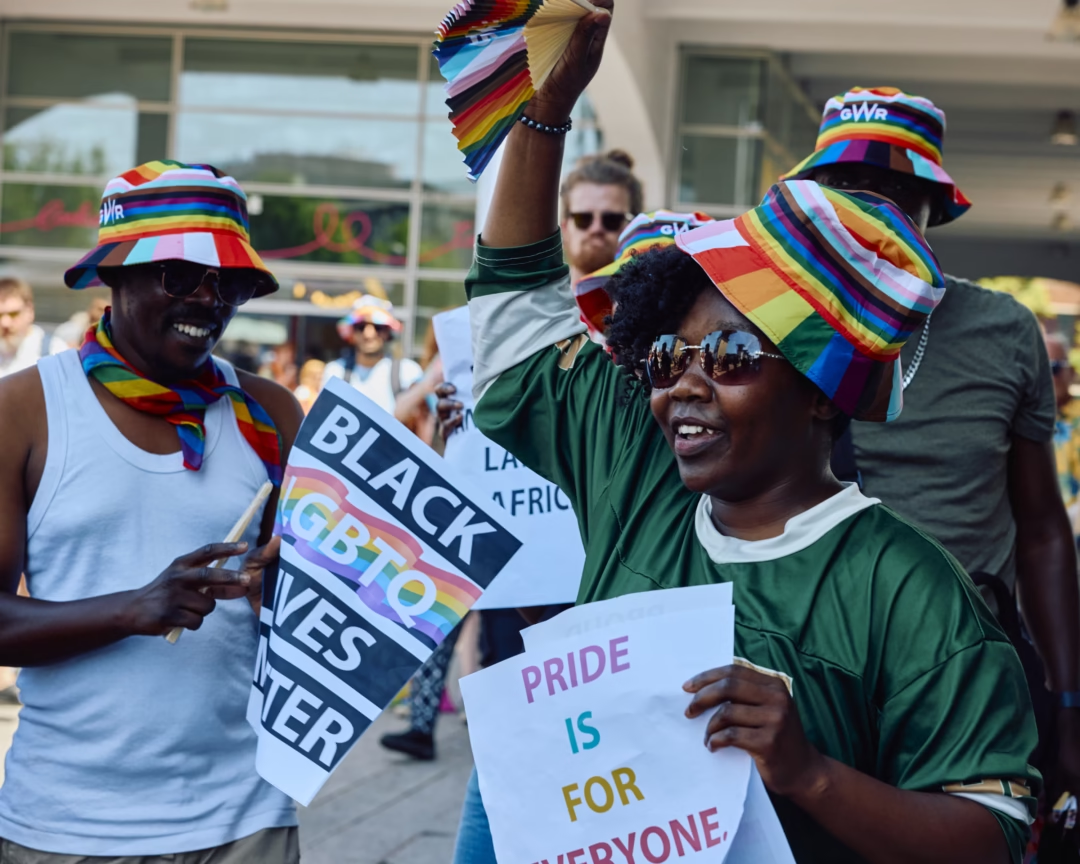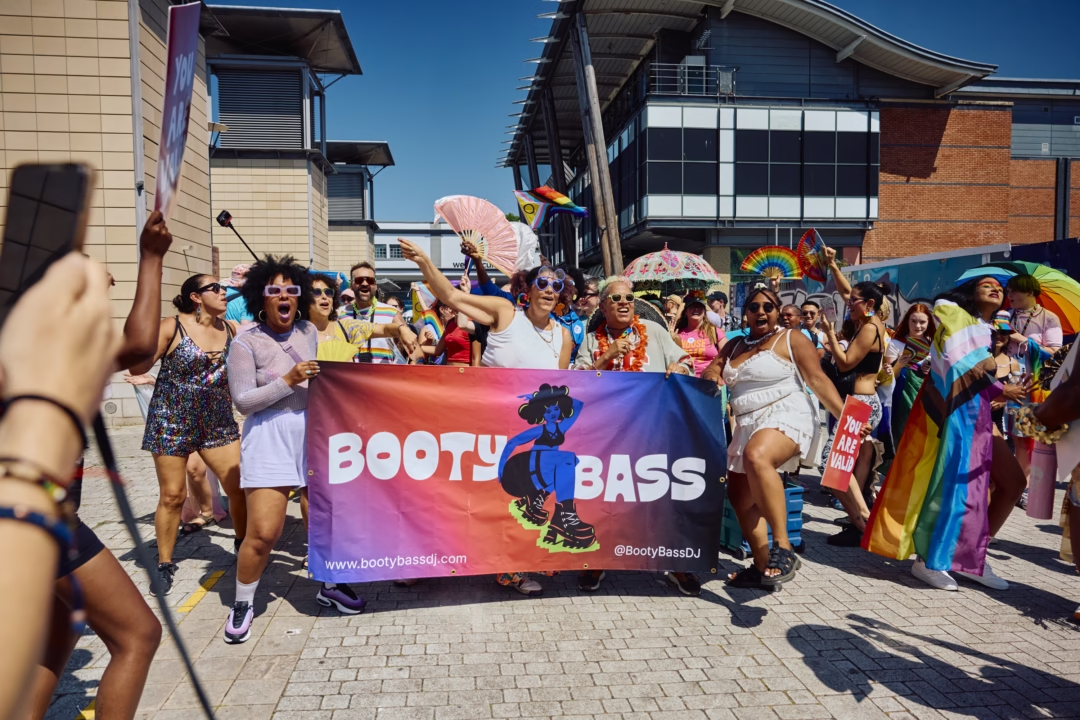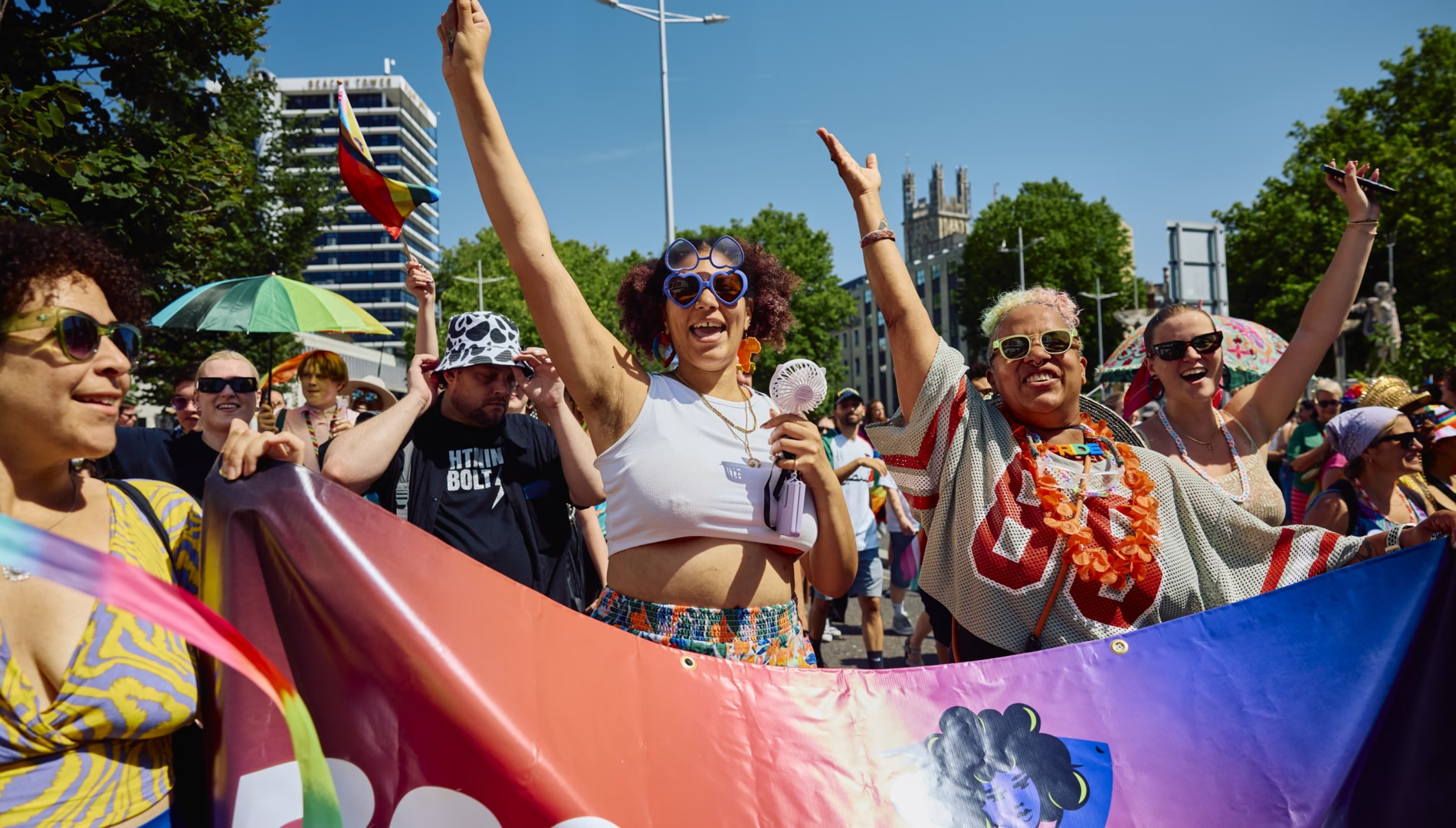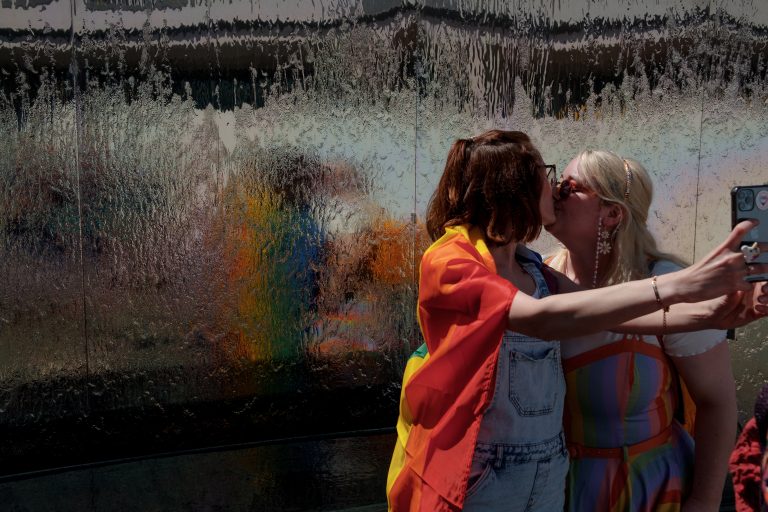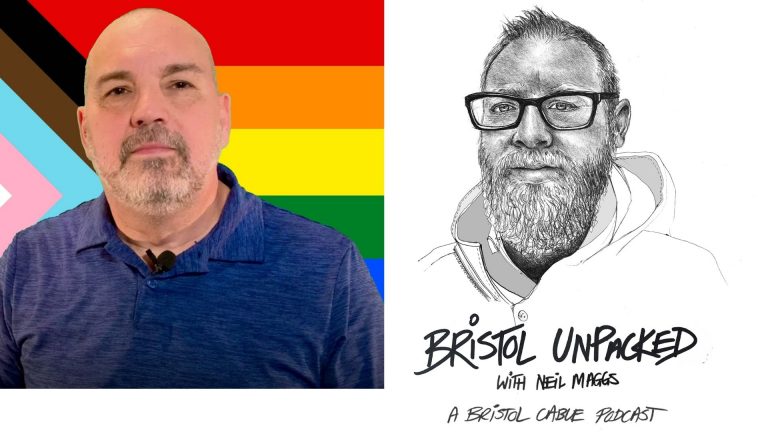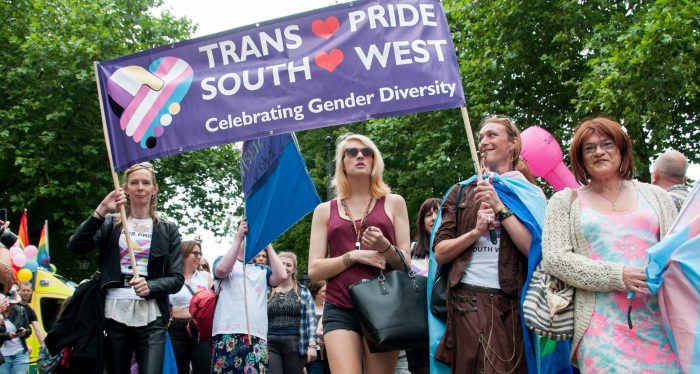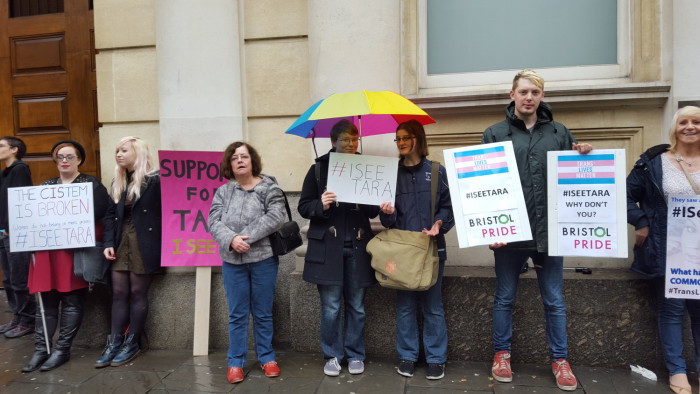I’ll be honest: I generally don’t attend Pride.
Noisy parades have rarely been my way of marking my queerness and now that I am a parent of a child sensitive to loud people and places, the incentive is even smaller. I’ve also long viewed commercially sponsored Pride events in this country as little more than a vehicle for large corporations to pay their way to a day’s redemption.
But this year, Pride marches felt necessary. It felt as if Pride needed to return to its roots of protest, particularly in the context of the Supreme Court’s ruling in April that the legal definition of a woman should be based on ‘biological sex’, which many see as a threat to trans rights.
In Bristol, 25,000 people came out to march against the anti-trans rhetoric that has dominated the conversation both in the UK and around the world.
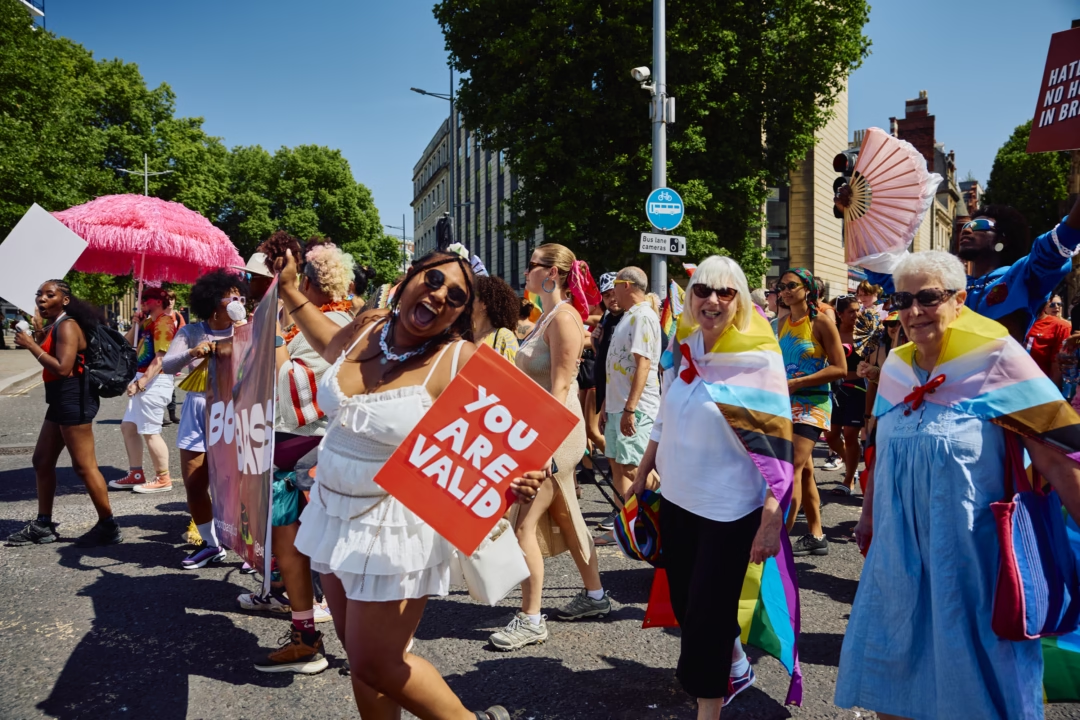
The organisers of Bristol Pride rightly don’t allow trans-exclusionary groups and all through the city — between the rainbows and the sparkles — people marched with Palestinian flags, anti-racist placards and messages of support for our trans siblings.
The march, which stretched through the city centre, felt unapologetic, joyous and celebratory, without shying away from the political. It was led by Booty Bass, a Bristol-based collective of queer-identifying DJs from the global majority. Alongside a bicycle sound system, they danced their way through the city, reminding Bristolians of Pride’s radical and inclusive roots.
